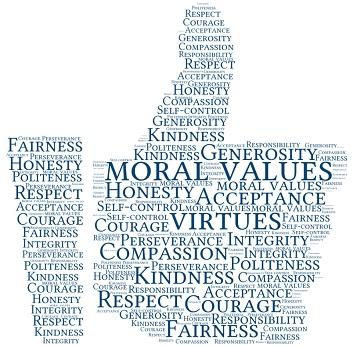If you are raising your children in the same religion you were raised in, these answers may be readily provided. What happens if you've rejected the religion you were raised in? How do you provide guidance in life's big questions when you're not sure yourself?
In her book In Good Faith: Secular Parenting in a Religious World, Maria Polonchek describes her journey. Raised in an evangelical Christian home, she started questioning many of her religion's beliefs as a teen. She describes her process of leaving this church and searching for other ways of answering life's big questions.
When one of her young sons asks "Who is God?" she realizes that she doesn't have pat answers like her parents did. How can she and her husband raise kids with moral values without the support of a church? She discusses her thoughts and feelings as she searches for answers.
They discover the Unitarian Universalist religion which supports diverse beliefs. By the time they first go to this church, their oldest twins are 9-years-old and prefer other activities on Sundays rather than going to church. Because of her own upbringing, Polonchek was reluctant to bring her kids to any church before they were able to reason on their own. Unfortunately by the time they are able to reason, they can give plenty of reasons why they should not have to go to church!
Interestingly we raised our kids in a Unitarian church because it allowed both my husband and my beliefs to co-exist. I wanted our kids to have a foundation in religion. The Unitarian church provides an excellent educational program including exploring various world religions.
If you are exploring how to raise moral kids without relying on religion, Polonchek's book will give you ideas from her path.


